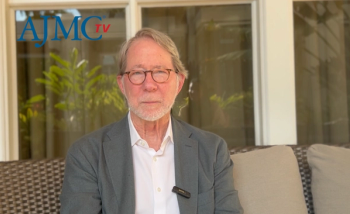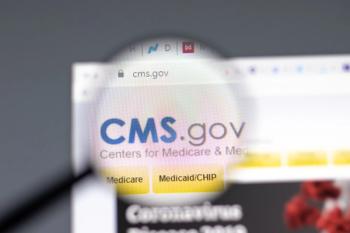
Reducing Hospital Readmissions May Prove Tougher than CMS Expects, AJMC Study Finds
The Centers for Medicare and Medicaid Services wants hospitals to find ways to keep patients from returning to the hospital, and the agency has created rewards and punishments in pursuit of this goal. A study in The American Journal of Managed Care is just one of a pair of recent clinical trials that finds readmissions may be beyond some hospitals' control, and policymakers might need to rethink their approach.
Reducing Hospital Readmissions May Prove Tougher than CMS Expects, AJMC Study Finds
FOR IMMEDIATE RELEASEOctober 17, 2014
PLAINSBORO, N.J. — Medicare’s effort to cut 30-day hospital readmission rates with financial penalties and aid for pilot projects seems fair—until you look at the data.
A study published today in The American Journal of Managed Care found that an intervention with many features in current demonstration projects failed to make a difference in slowing readmission rates. Ariel Linden, DrPH, the study’s lead author, speculates that the difference-maker may be something his study couldn’t control: whether hospitals have collaborative relationships with the primary care doctors who see patients after discharge. For a copy of the study,
Based on the results, he said, “Even with robust interventions, there appears to be a limit to what hospitals can do on their own."
Dr. Linden and Susan Butterworth, PhD, studied 512 patients in a randomized controlled trial involving two community hospitals in Oregon. The patients had congestive heart failure (CHF) or chronic obstructive pulmonary disorder (COPD) and were randomly assigned to either usual care or an intervention that involved a 90-day hospital-based transitional care program. The intervention featured:
- patient education and planning ahead of discharge;
- post-discharge follow-up, including phone calls and a letter to the patient’s primary care clinic;
- availability of a hot line; and “bridging” elements that included multiple sessions of motivational interviewing-based health coaching and a daily interactive system to check for worsening health symptoms.
At the end of both 30 and 90 days, there was no statistical difference in readmission rates between those who received the intervention and usual care. This lack of statistical difference continued when the researchers measured visits to the emergency department, and results were similar between CHD and COPD.
One area of difference was mortality: 14 patients in the intervention group died, compared with 26 in the usual care group, with most of the difference occurring in the COPD patients.
So how to explain the lack of impact from such a comprehensive intervention?
The authors found that these community hospitals lacked the ability to compel primary care physicians (PCPs) to work with them to avoid acute events after discharge on an outpatient basis, which would typically require close monitoring of these patients for a period of time after hospitalization and same-day appointments when symptoms worsened. In the single case in which a patient received same-day care from a PCP, the problem was resolved without a trip to the emergency room. Indeed, there were multiple cases logged in the study nurse journals where patients had called for an appointment with their PCP in non-emergency situations, only to be sent to the emergency room or told that the earliest appointment was weeks out.
“Thus,” the authors wrote, “there is anecdotal evidence to suggest that in our study, early and effective primary medical care could have prevented at least some readmissions.”
Dr. Linden noted that comparable results appeared recently in the Annals of Internal Medicine (Goldman, et al).
Taken together, the studies raise important policy questions: Should community hospitals that do not have collaborative relationships with local family doctors face the same penalties as large integrated systems that can refer patients directly to their own PCPs for follow-up? Are 30-day readmission penalties for hospitals always fair, or only in certain healthcare delivery models?
Hospitals that buy up physician practices are sometimes criticized for creating monopolies, but Dr. Linden said his findings may put such efforts in a different light. “While hospitals owning physician practices may have negative ramifications for pricing of services in the marketplace, this may be the way to bring more control over the process of reducing readmissions,” he said.
Future research, he said, should compare readmission rates for hospitals that have collaborative relationships with PCPs to those that do not. Depending on the results, CMS may be forced to rethink its penalties on community hospitals, or it may find new ways to encourage delivery models that bring buy-in from PCPs.
About the Journal
The American Journal of Managed Care, now in its 20th year of publication, is the leading peer-reviewed journal dedicated to issues in managed care. Other titles are The American Journal of Pharmacy Benefits, which provides pharmacy and formulary decision makers with information to improve the efficiency and health outcomes in managing pharmaceutical care. In December 2013, AJMC introduced The American Journal of Accountable Care, which publishes research and commentary devoted to understanding changes to the healthcare system due to the 2010 Affordable Care Act. AJMC’s news publications, the Evidence-Based series, bring together stakeholder views from payers, providers, policymakers and pharmaceutical leaders in oncology and diabetes management. To order reprints of articles appearing in AJMC publications, please call (609) 716-7777, x 131.
CONTACT: Mary Caffrey (609) 716-7777 x 144
Newsletter
Stay ahead of policy, cost, and value—subscribe to AJMC for expert insights at the intersection of clinical care and health economics.








